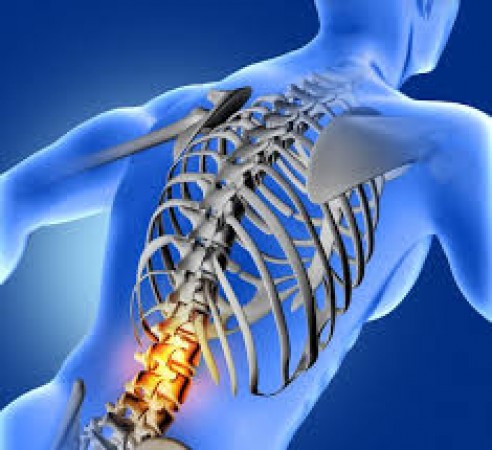Persistent back pain is a common ailment affecting millions of people worldwide. While it's often attributed to minor strains or muscle tension, persistent back pain can sometimes indicate more serious underlying health issues. Ignoring persistent back pain can lead to worsening symptoms and potential complications. Therefore, it's crucial to understand the possible causes of persistent back pain and seek the opinion of health experts for proper diagnosis and treatment.
Potential Causes of Persistent Back Pain
1. Degenerative Disc Disease (DDD)
- DDD is a condition characterized by the gradual deterioration of the spinal discs, leading to chronic back pain, stiffness, and reduced mobility.
- Over time, the discs between the vertebrae can wear down, causing pain and discomfort, especially during movement or prolonged sitting.
2. Herniated Disc
- A herniated disc occurs when the soft inner core of a spinal disc protrudes through the tough outer layer, irritating nearby nerves and causing back pain, numbness, or weakness.
- The pain may worsen with certain movements or activities and may radiate to the buttocks, legs, or feet.
3. Spinal Stenosis
- Spinal stenosis is a narrowing of the spinal canal or nerve openings, often due to age-related changes or conditions such as arthritis.
- This narrowing can compress the spinal cord or nerves, leading to back pain, numbness, tingling, and weakness in the legs, especially with walking or standing.
4. Spondylolisthesis
- Spondylolisthesis occurs when a vertebra slips out of place, usually forward over the vertebra below it, causing lower back pain and stiffness.
- In severe cases, nerve compression may result in radiating pain, numbness, or weakness in the legs.
5. Osteoarthritis
- Osteoarthritis is a degenerative joint disease that commonly affects the spine, leading to inflammation, pain, and stiffness.
- As cartilage wears away between the vertebrae, bone-on-bone contact can cause significant discomfort, especially during movement.
6. Rheumatoid Arthritis
- Rheumatoid arthritis is an autoimmune condition that can affect the spine, causing inflammation, pain, and stiffness.
- In addition to back pain, individuals with rheumatoid arthritis may experience systemic symptoms such as fatigue, fever, and joint swelling.
7. Infections
- Infections of the spine, such as osteomyelitis or discitis, can cause persistent back pain, along with fever, chills, and localized tenderness.
- Prompt diagnosis and treatment are essential to prevent complications such as abscess formation or spinal cord compression.
Seeking the Opinion of Health Experts
When experiencing persistent back pain, it's essential to consult with health experts for proper evaluation and management. Health experts may include:
Primary Care Physicians
- Primary care physicians can assess the severity of back pain, perform physical examinations, and order diagnostic tests to identify underlying causes.
- Depending on the findings, they may provide treatment or refer patients to specialists for further evaluation.
Orthopedic Surgeons
- Orthopedic surgeons specialize in diagnosing and treating musculoskeletal conditions, including those affecting the spine.
- They may recommend conservative treatments such as physical therapy, medications, or injections, or surgical intervention for severe cases.
Neurologists
- Neurologists are specialists in disorders of the nervous system, including conditions that affect the spine and nerves.
- They may conduct nerve conduction studies, electromyography (EMG), or imaging studies to assess nerve function and identify compression or damage.
Physical Therapists
- Physical therapists can design individualized exercise programs to strengthen the muscles supporting the spine, improve flexibility, and alleviate pain.
- They may also use techniques such as manual therapy, traction, or modalities like heat or cold therapy to reduce discomfort.
Chiropractors
- Chiropractors focus on spinal manipulation and manual adjustments to restore proper alignment and alleviate pain.
- While chiropractic care may provide relief for some individuals, it's essential to ensure that the practitioner is licensed and experienced in treating back pain.
Persistent back pain should not be ignored, as it may be a sign of underlying health issues requiring medical attention. By understanding the potential causes of back pain and seeking the opinion of health experts, individuals can receive timely diagnosis and appropriate treatment to manage their symptoms effectively.
After delivery, your skin has become dull or your tension is increasing, know what to do and what not to do
What kind of diet should a cancer patient follow after chemotherapy, know what the experts say
How Much Milk Should Women Drink During Pregnancy?
